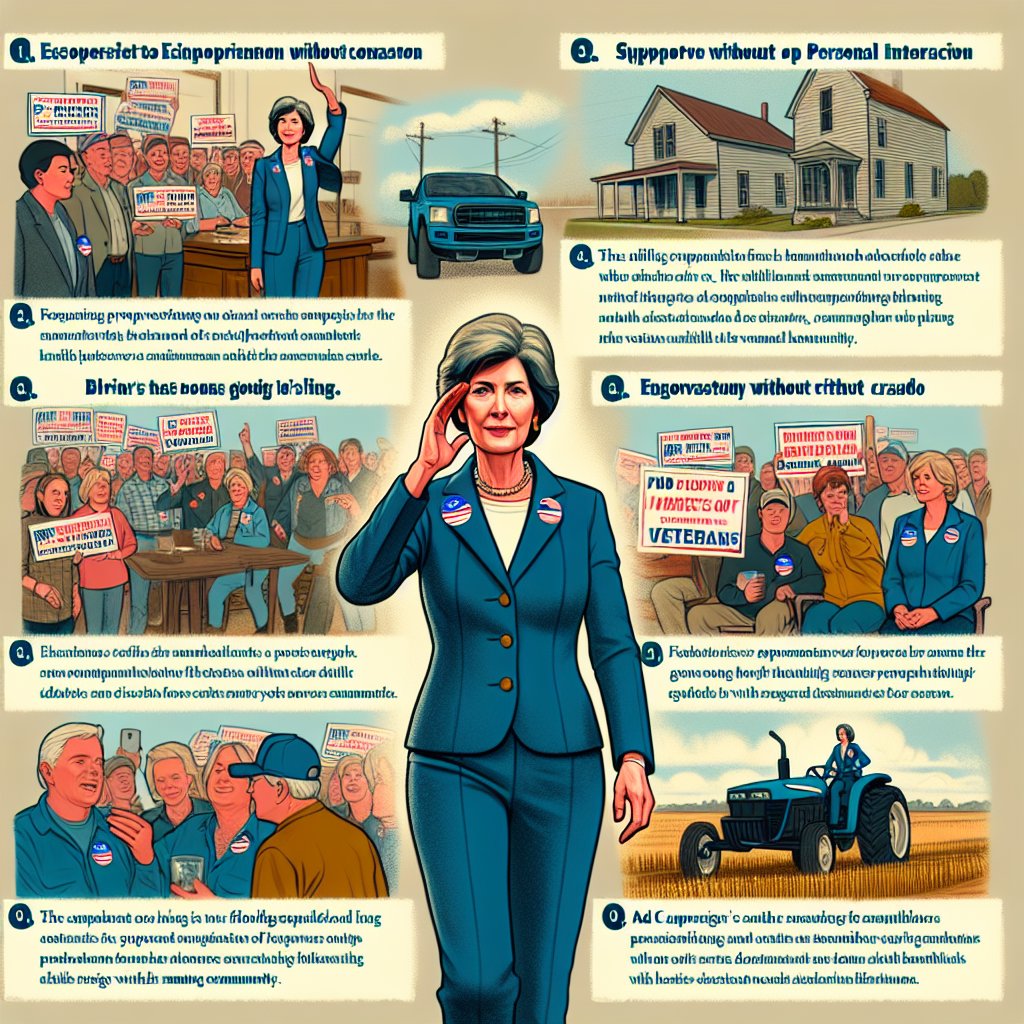Content created by AI
Nikki Haley Courts Rural Voters to Challenge Trump's Lead in GOP Race
As the race for the 2024 Republican presidential nomination heats up, former South Carolina Governor Nikki Haley is strategically broadening her coalition to include voters beyond her current stronghold of college-educated, affluent, suburban professionals. With opinion polls indicating Haley's rising popularity, her campaign's quick and targeted efforts to draw in rural, middle- or working-class Republicans could be vital to seriously contest Donald Trump’s lead.
In recent months, Haley has been actively campaigning in Iowa, especially within areas known for Trump's robust support base. Her initiatives, like the establishment of the "Farmers for Nikki" coalition and ad campaigns in rural regions, are attempts to resonate with the agrarian community and underline her small-town upbringing's parallels with the lives of many Iowans.
Speaking at various town halls, Haley focused on sharing her backstory and addressing issues such as veterans' healthcare—a concern that disproportionately affects rural Americans. However, she has largely refrained from attacking Trump directly on the campaign trail despite criticizing his "chaotic and divisive" management style in other forums. Currently trailing behind Trump and, to a lesser extent, Florida Governor Ron DeSantis, Haley's outreach has seen her popularity rise, indicating the potential for a shifting dynamic as the nomination process unfolds.
Polls show Trump retaining a formidable lead in Iowa, dominating among the non-college-educated Republicans. According to an Ipsos poll, with 61% support for Trump nationally, both Haley and DeSantis are tied at 11%. However, closer analysis reveals that around seventy percent of Republicans without a college degree back Trump, whereas Haley has a stronger grasp on college-educated Republicans and suburban voters.
SFA, a Political Action Committee (PAC) backing Haley's presidential ambitions, has invested over $25 million in promoting her campaign, with ads that resonate with the financial concerns of the middle class and target high-income, college-educated, and suburban demographics. Haley's campaign tactics also extend to personal interactions, with an emphasis on holding town halls and engaging directly with potential voters.
In New Hampshire, a state with significantly higher affluence, Haley challenges Trump more effectively, showing a competitive edge in internal polling, which suggests she could be a potent contender in a direct match-up against him. Despite some DeSantis campaign officials' skepticism regarding Haley's ability to sway Trump supporters, on-the-ground interviews in Iowa reveal a mixture of willingness to consider post-Trump candidates and residual loyalty to the former president.
Haley's personable approach and efforts to address contemporary issues, without the baggage of Trump's legal entanglements and polarizing statements, have attracted some voters who consider her a refreshing alternative capable of generating enthusiasm without chaos.
As the Iowa caucuses approach, Haley's strategy of expanding her voter base by forging connections with typically Trump-leaning demographics while maintaining her current support could be the key to mounting a serious challenge against Trump's nomination dominance.










